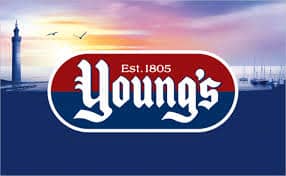Joan McAlpine MSP has spoken to the chief executive of Young’s Seafood and pressed on him the importance of retaining jobs in Annan.
The South Scotland MSP spoke to the company boss by phone while he visited Annan for talks politicians and workers’ representatives.
During the 40 minute conversation, Ms McAlpine told Mr Showalter, who previously ran the giant Findus Company, that workers at Annan had contributed to the company’s profits for many years and that Young’s should co-operate with the action group set up by the Scottish Government and Dumfries and Galloway Council to save jobs.
She conveyed concerns expressed by the workers that the plant was secretly targeted for closure last year by the Grimsby based company, who went ahead despite Pinneys improving its performance markedly and receiving a “silver” grading from independent auditors.
Ms McAlpine asked Mr Showalter not to asset strip the plant and pointed out that many consumers could shun Scottish salmon processed in Grimsby in favour of products reared, processed and packaged north of the border.
Speaking after the call Ms McAlpine said:
“I was grateful to Mr Showalter for taking the time to speak to me but I was left with mixed feelings after our conversation.
“I had been told closing Pinneys would cost Young’s £4 million in redundancy payments, so I would have hoped he would be more open, say, to keeping the natural salmon at Annan, but he didn’t offer much encouragement, saying that Grimsby was their “centre of excellence” for that product.
“I pointed out to him that consumers might be more inclined to buy salmon wholly produced in Scotland and the product could well suffer if consumer campaigns focussed on that in future.
“Mr Showalter was more positive about potential new operators – he mentioned several food producers – including a household name – who had expressed interest in the plant and he assured me Young’s would co-operate in giving potential buyers access to the site. In addition to three who I understand have already visited, there were another four expressions of interest.
“I was also encouraged that he said the rise in sales of frozen fish – up 17% last year – could benefit scampi and the Annan plant was the only scampi producer that Young’s owned so it might benefit further.
“But I was disappointed that he did not rule out moving the new plant and equipment away from Pinneys, should Young’s decide to pull out at the end of the consultation process – he said the labelling equipment, which cost £600,000 was quite specific to Marks and Spencer products. He did say Young’s was willing to discuss financial recompense with new owners who wanted to keep the equipment.
“He agreed Pinneys had made progress under its new manager and had been “heading in a positive direction”. He said the proposal to close was not to do with the people on the ground but blamed the drop in the volume of chilled salmon sales caused by the fall in the value of the pound and the squeeze on incomes since Brexit.”
Ms McAlpine and Mr Showalter also discussed the vulnerability of single supplier sites in the food processing industry.
Marks and Spencer is Pinneys only customer and aside from a few small contracts here and there, has been the destination for its products for many years.
The chief executive said such arrangements had grown up in the industry because it “allows a higher degree of cooperation between supplier and retailer,” but in his opinion the trend has begun to move away from such arrangements towards highly specialised sites making a single product for a number of clients.
Ms McAlpine said:
“Whether Marks and Spencer demands exclusivity or whether it grows up by mutual agreement, it still makes the communities affected extremely vulnerable when contracts are re-organised.
“That is why the supermarket in my view has the same corporate responsibility to workers at the company that directly employs them





